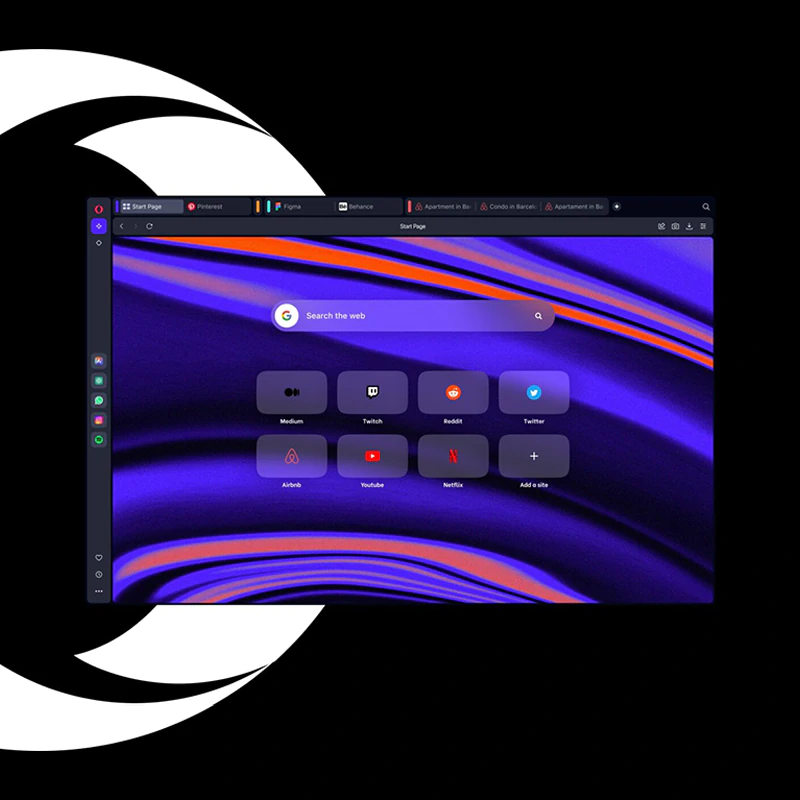
The tech sphere is changing rapidly, thanks to AI, and the pace it's changing quickens.
This happens after OpenAI introduced ChatGPT, a chatbot so capable and powerful that it sent others in the competition into a frenzy. Among them, include Opera.
The browser maker began by announcing a partnership with OpenAI to create a browser capable of creating "AI-generated content".
After that, the company said that it was building an enhanced browser with ChatGPT chatbot built into it.
This comes to fruition, when the company announced 'Aria,' the AI for its web browser with generative AI natively built into it.
And this time, Opera finally debuts the first stable version of its AI-infused browser it calls 'Opera One'.
Opera One. Out Now! pic.twitter.com/Ik8UJzDglj
— Opera (@opera) June 20, 2023
According to Opera in a blog post, Opera One is "the first AI-powered browser," and that it's an "incarnation of the Opera Browser."
"Aria, Opera’s new browser AI, is a key component of Opera One, allowing users free access to a leading generative AI service. Aria's GPT-based solution is further enhanced with up-to-date information from the web & Opera browser support."
The main feature of Opera One, is Aria, which is a GPT-powered technology that allows users to browse the live web with it.
Because Aria is the main feature of this browser, Opera One comes with a brand-new command line that allows users to use their computer's keyboard shortcut to display an overlay and interact with the AI.
What's more, Aria also makes use of Opera's AI Prompts, which give users contextual prompts by highlighting or right-clicking text in the browser.
Other features include the Tab Island feature, which groups tabs automatically based on context, providing a more intuitive way to interact with tabs. Users can keep different browsing contexts separate, move tabs around and collapse islands.
The browser comes with what Opera calls a Modular Design, which "delivers a liquid navigation experience which is more intuitive, transforming the way you interact with your browser."
Opera is so confident of this AI-powered web browser, that it touted Opera One as the replacement of its flagship Opera browser.
Today, Opera One also unveils the first built-in browser AI, Aria!
Aria is available for free for Opera users & is enhanced by live web search results in addition to its GPT-service solution.
Here’s what sets Aria apart from other AI services: pic.twitter.com/vqE0LvpLKn— Opera (@opera) June 20, 2023
Its approach makes Opera One a browser like no other in the market.
Not only does it include existing features already found in Opera's flagship browser, because it also adds the multithreaded compositor for animation effects, and some new tab features that make it easy to keep a plethora of tabs organized in ways no other browser can touch.
Opera is a popular web browser, but if compared to the likes of Google Chrome, Mozilla Firefox or Apple Safari, the browser is an underdog, in terms of number of users.
But what makes Opera One shines, is its approach to generative AI technology, the hype of technology that has gained headlines and created hypes due to its ability in generating human-like response.
On Opera One, Aria is readily available in the sidebar. Users can further interact with Aria through a new command line, using the ctrl+/ (Win) or the cmd+/ keyboard shortcut. You can also connect to Aria through Opera’s own AI Prompts by highlighting the text on webpages.
— Opera (@opera) June 20, 2023
By embedding OpenAI's technology directly inside it, Opera One is giving users the experience of browsing the web, through the perspective of an AI.
Many people have given a considerable thought to really conclude how ChatGPT could be reliable, since generative AIs tend to hallucinate and fabricate fake information, and rob people from their jobs.
Opera One in placing its emphasis on AI, is showing how it's betting its business by piggybacking the generative AI hype.
But to ensure that Opera One is also useful for those who do not want to use AI, the web browser has provided a simple switch users can flip, to entirely disable the AI feature.
It's worth noting that Opera names the browser "Opera One," because it's a name chosen to refer to Opera hitting browser version 100.
"From now, Opera’s naming scheme will be updated every year," said Opera.